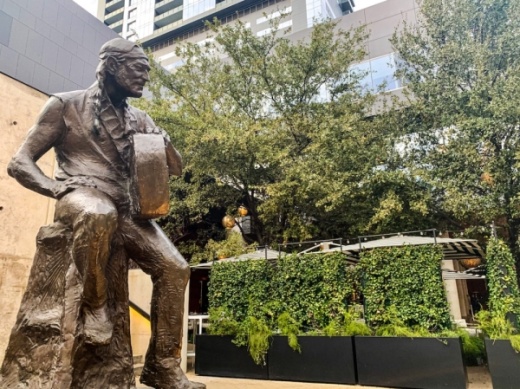Austin City Council set out to change that on Jan. 23, with a 9-0 vote directing the Austin Police Department to essentially end enforcement of “low-level” marijuana possession offenses. Mayor Steve Adler and District 6 Council Member Jimmy Flannigan, a sponsor of the resolution, were off the dais. The resolution emphasizes that felony-level trafficking crimes will still be enforced as usual.
The effort piggybacks off of the Texas Legislature’s 2019 decision to legalize hemp, which, like marijuana, is a byproduct of the cannabis plant. The state defines hemp as containing less than 0.3% of tetrahydrocannabinol, or THC, the psychoactive chemical in marijuana. Since hemp and marijuana are only distinguishable by THC levels, the Travis County attorney and the district attorney said last year they would no longer prosecute possession offenses unless there was an accompanying lab report confirming illegal levels of THC. Police departments are typically responsible for paying for the tests, District Attorney Margaret Moore has said.
Council’s resolution, led by Casar, sets a city policy that, as long as these lower-level cases require testing for prosecution, no personnel or city funds will be used to test THC levels unless it is a high-priority felony drug trafficking or violent crime case. According to city staff, purchasing lab equipment needed to test THC levels can cost up to $250,000. Austin police Chief Brian Manley told Community Impact Newspaper that his department was actively pursuing purchase of that equipment before City Council’s Jan. 23 direction.
However, Manley told Community Impact Newspaper that City Council’s Jan. 23 action should not empower anyone to smoke marijuana in public, as marijuana possession still violates state law and City Council cannot dictate enforcement of state law.
“You will likely receive a citation and possibly an arrest,” Manley said; however, he acknowledged that because the district and county attorneys are requiring a THC test that the police department cannot perform, “prosecution [of the offense] remains in question” at this time. Manley said he will work with the city manager to understand how the resolution will impact the department’s operation.
Emily Gerrick, a senior staff attorney with the Texas Fair Defense Project, said with City Council’s action, the police department should no longer be handing out any citations or arrests, even if someone is smoking pot in public.
“But we’ll see,” Gerrick said.
Although Manley said City Council could not impact enforcement of state law, Mayor Pro Tem Delia Garza said City Council’s action would impact police department operations.
“I respect what APD does, but City Council is responsible for deciding our policies and prioritizing our resources,” Garza said. “This is a case where state law doesn’t align with Austin values.”
Manley said the police department is already a “model” department for how it handles marijuana possession. He said arrests due to possession have decreased significantly because of the Freedom City policies passed by City Council in 2018 that urged cite-and-release over arrests. The greater aim of the Freedom City policies was to reduce racial disparities in discretionary arrests.
Local resident Jared Breckenridge said he was proud of City Council for the “monumental change” they were implementing. He applauded the council members and encouraged them to stand strong when “the governor comes knocking at your door. Because you know he will.”
Casar said even if the state attempted to give the city money to purchase the lab equipment, the city policy moving forward mandates no personnel resources be used to test THC levels. He also told Community Impact Newspaper that City Council would have to vote to accept any money from the state.
Texas Gov. Greg Abbott’s office did not respond to requests for comment.
Ken Casaday, the president of the Austin Police Association, said he would be right behind City Council during the next state legislative session trying to get marijuana legalized and said he has worked in the past with council offices in trying to encourage officer use of CBD oil rather than opioids as pain medication. However, he objected to City Council’s Jan. 23 action, warning of “unintended consequences.”
Cary Roberts, the executive director of the Greater Austin Crime Commission, said he did not believe City Council’s action changed much, and he said people smoking in public would still likely get a citation—at a minimum.
Casar acknowledged that the direction does not legalize marijuana but represents progress on the issue. Flannigan's office also emphasized that City Council's action did not "decriminalize" marijuana possession, but rather aimed to deprioritize enforcement against it.
“This is not a change to state law, but it does reprioritize what we focus on, with a goal toward no penalties,” Casar said.





